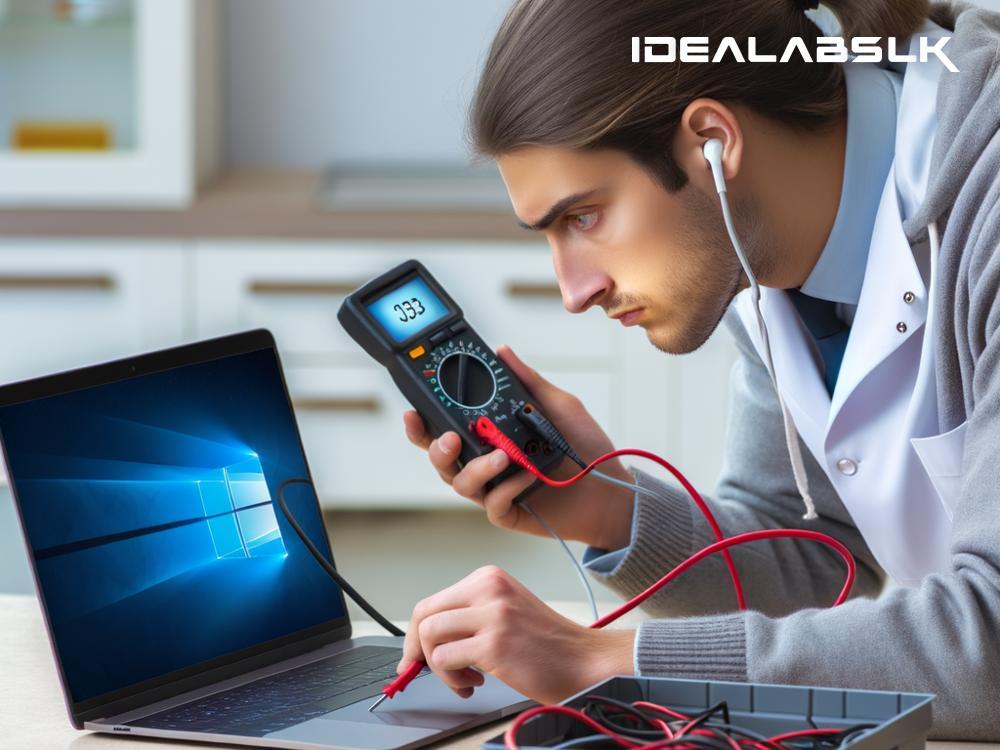Fixing 'Laptop Shuts Down While Charging': A Simple Guide
If you've ever experienced your laptop shutting down unexpectedly while it's charging, you know how frustrating it can be. It disrupts your work, gaming, or whatever you were doing on your computer. But don't worry; this common problem can often be fixed with a few simple steps. In this guide, we'll explore the possible reasons behind this issue and offer easy solutions to get your laptop up and running smoothly again.
Understanding the Issue
When your laptop shuts down while charging, it's usually a sign of an underlying issue. This could range from a problematic battery or charger to overheating or software problems. Identifying the cause is the first step towards fixing the issue.
Possible Causes and Solutions
1. Faulty Battery
The battery might be the culprit if your laptop only shuts down when it's charging. Over time, laptop batteries degrade, and their efficiency reduces. If your laptop is relatively old or has been used extensively, this might be the case.
Solution: Try running your laptop without the battery, by removing it and plugging the laptop directly into power. If it runs fine, the battery is likely the issue and might need replacement.
2. Bad Charger or Connection
Sometimes, the problem isn't with the laptop itself but with the charger or power connection. A faulty charger or a loose connection can cause inconsistent power supply, forcing the laptop to shut down.
Solution: Inspect the charger for any signs of damage. Also, ensure the connection is secure both on the laptop and the power source. Try charging with a different compatible charger to see if the issue persists.
3. Overheating
Laptops are designed to shut down automatically to prevent damage when they get too hot. Charging can sometimes cause your laptop to overheat, especially if it's running high-performance tasks simultaneously.
Solution: Ensure your laptop has proper ventilation. Avoid using it on soft surfaces like beds or couches, which can block air circulation. Cleaning the vents with compressed air can also help improve airflow.
4. Software or Driver Issues
Outdated or corrupted software and drivers can cause a variety of problems, including unexpected shutdowns. It's essential to keep your system and drivers up to date.
Solution: Check for updates regularly, especially for your BIOS, chipset, and battery management drivers. This can usually be done through the Device Manager on Windows laptops or the System Updates section on Macs.
5. Power Management Settings
Incorrect power management settings might lead to your laptop shutting down to save power, even when it's supposed to charge.
Solution: Go to your laptop's power management settings and ensure they're set to favor performance when plugged in. Adjusting these settings can prevent the laptop from shutting down unexpectedly.
General Maintenance Tips
To keep your laptop running smoothly and avoid issues like this, here are a few general maintenance tips:
-
Keep it clean: Regularly cleaning your laptop's exterior and vents can prevent dust buildup, which contributes to overheating.
-
Update regularly: Keep your operating system and all drivers up to date to avoid compatibility and performance issues.
-
Battery care: To prolong your battery's life, try to keep it charged between 20% and 80% most of the time and avoid letting it drain completely before charging.
-
Use official accessories: Whenever possible, use chargers and batteries provided by your laptop's manufacturer. Third-party accessories might not meet the required specifications and could cause problems.
Conclusion
A laptop shutting down while charging can disrupt your day, but it's often a fixable issue. By identifying the cause, whether it's a faulty battery, charger, overheating, or software problems, you can apply the appropriate solution and get back to using your laptop without interruptions. Remember, regular maintenance and updates play a crucial role in preventing these kinds of problems. If the issue persists, consider seeking help from a professional technician, as there might be a more serious underlying problem with your laptop.

